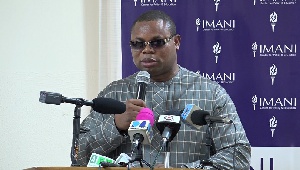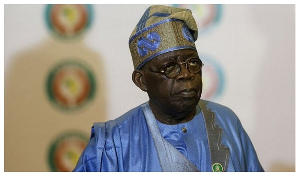Tema, Oct. 19, GNA - Dr Vladimir Antwi-Danso, Dean of Students of the University of Ghana on Saturday called for the reactivation of the scholarship scheme that existed between Russian and Ghanaian governments.
Addressing the 11th National Congress of the Soviet Trained Ghanaian Graduates Association (SOTGGA) at Tema, he said in the past, 250 Ghanaians gained scholarship to study in various fields in the Soviet Union but the number has drastically reduced to 15, made up of 10 under graduates and five postgraduates.
The congress was being held with the theme: "The role of the Soviet trained in the socio-economic development in Ghana," which was attended by members, made up of medical doctors, engineers, lecturers, and professors, among other scholars.
Dr Antwi-Danso, an executive member of the SOTGGA stated that it cost less to train Ghanaians in the Soviet Union than in the Western countries yet few of the Western trained return home to contribute their quota to the national reconstruction while almost all the Soviet trained come home to work in all spheres of the economy.
In the light of this he entreated both the Soviet and Ghanaian governments to consider concentrating in that area and reactivate the scholarship scheme to enable more Ghanaians to train in their capabilities.
He said, presently, the Ghana Medical Association (GMA) has between 60 and 70 percent of its members trained in the Soviet while 80 per cent of Veterinary doctors also benefited from the offer.
"We have a lot of scientists, doctors, lecturers, educationists, manufacturers, and professors trained in that stated who are working in the spirit of commitment, dedication and patriotism that should be an encouragement to train more of such scholars".
Dr Antwi-Danso however, regretted that despite the acquisition of the quality knowledge Ghanaian holders of Soviet certificates are not recognised in certain circles and called for a reverse of this attitude. He encouraged the Soviet trained Ghanaians to continue to work harder to justify their training, endeavour to go for refresher courses, show excellence and always aspire to be in the limelight.
Mr Valery Orlov, Ambassador of the Russian Federation said the doors of Russian universities and colleges are annually opened for students, trainees and specialists and almost 90,000 people from 150 countries in the world are receiving training at present.
He said only Africans states annually get more than 700 grants for students and young scientists at the expense of the Russian federal budget.
Mr Orlov prayed that more Ghanaians learn the Russian language to enrich their linguistics and regretted that the studying of the language continue to decline.
He said the system of education of young people from other countries was formed almost a century and half ago that was opened for talented youth regardless of social, class or financial position, religion or national identity.
About 40 years ago Dr Kwame Nkrumah, first president of the Republic of Ghana sent the first batch of young Ghanaian men and women to be trained in the Soviet Union and 4,000 have since received training. He commended those who excelled in their fields and are making productive use of the knowledge.
Dr Nii E. Antwi Fleitchter, president of the SOTGGA stated in a welcoming address that Ghana is currently faced with developmental challenges in inadequate human resource capacity in diverse spheres of professional and occupational endeavour.
The situation is compounded by the mass exodus of Ghanaian graduates and professionals in search of greener pastures abroad, but the Soviet-trained have over the years demonstrated a sense of patriotism and commitment to the progress and development of their motherland.
It is against this background that the theme was chosen, saying that the Soviet-trained have proven their mettle and in the process dispelled the unfounded reservations some employers had about them.
Members called for effective public relations work to enable inactive members to attend meetings in order to capture all the 3,500 members. 18 Oct 03
General News of Sunday, 19 October 2003
Source: GNA












